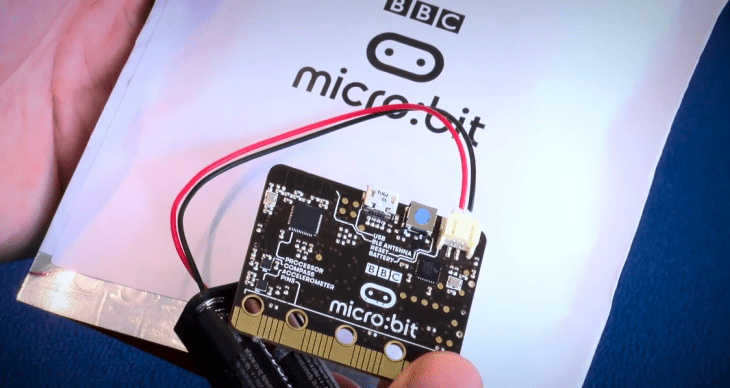A tiny computer intended to encourage UK kids to get programming is finally being delivered to schools, some half a year later than originally planned.
The micro:bit was announced a year ago — the brainchild of the UK’s public service broadcaster, the BBC, serving the educational strand of its charter. While it may seem odd for a broadcaster to be dabbling in computing hardware the Corporation has past precedent here, via the 1980s home computer the BBC Micro.
The BBC intends the micro:bit to inspire “a new generation to get creative with coding, programming and digital technology”, in an era when — unlike the 80s — mobile computing devices are plentiful yet most are not designed to encourage DIY coding. (Although the UK as a country punches above its weight here, thanks to the success of the Raspberry Pi microcomputer.)
This time last year the BBC said it would be gifting one million Micro Bits to 11-year-old UK schoolkids, in fall 2015. That timeframe has slipped considerably, with the device only now starting to be handed out mid-way through the school term — leading to concerns it may not live up to its educational potential, given that teachers are likely to have created lesson plans for the school year already.
The challenge of building hardware by co-ordinating such a large list of partners — the BBC said it had almost 30 partners working with it on developing the micro:bit, including manufacturers, software makers, retailers and educators — is the likely culprit for the delay here.
After giving the kit to schoolkids the BBC has said it would be licensing the design, via a non-profit it created for the purpose, to companies wanting to make additional micro:bits. Given the huge success of the Raspberry Pi — which earlier this year announced it had sold five million units in some three years since launch — that’s perhaps not a huge surprise. The market for creative computing devices with educational potential is well proven at this point (and startups have also been getting involved here).
Following the schools rollout, the BBC now says the hardware specifications and much of the software for micro:bit will be open-sourced, and the device will be made available to buy from a range of retailers. Money generated from any commercial sales will then be used to “further encourage as many people as possible to join the coding revolution”, as the BBC puts it.
The micro:bit board includes a bank of LEDs, a pair of programmable buttons, an accelerometer to detect motion, a compass/magnetometer, Bluetooth connectivity and a selection of input and output rings to link to other devices and sensors — all with the aim of offering a toybox of tech tricks that kids can play around with. The board itself is small enough that it can be incorporated into a wearable design.
On the software/coding side, there’s a companion website hosting multiple code editors and tutorials, plus video guides to get kids started.
